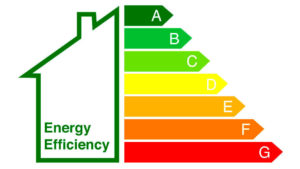As of April 2025, the UK Government is actively engaging in a consultation process to explore significant changes to the Energy Performance Certificate (EPC) requirements for privately rented homes in England and Wales. These proposals, if implemented, would raise the minimum EPC rating from the current Band E to Band C by the year 2030. This initiative forms a core part of the government’s broader strategy to reduce carbon emissions, tackle climate change, and address fuel poverty across the country.
By focusing on improving energy efficiency in the private rented sector, the government aims to create warmer, more sustainable homes while simultaneously helping tenants save on energy bills. These measures are seen as crucial in the pursuit of the UK’s legally binding 2030 fuel poverty targets and net zero carbon goals.
Current EPC Requirements for Landlords
Under the existing framework known as the Minimum Energy Efficiency Standards (MEES), all privately rented properties must achieve at least an E rating on the EPC scale to be legally let to tenants. This applies to both existing and new tenancies, unless a valid exemption has been officially registered on the Private Rented Sector (PRS) Exemptions Register.
These regulations have been in effect since April 2020 and were designed to phase out the most inefficient properties in the rental market. Landlords found to be non-compliant with these minimum standards can face penalties and enforcement action by local authorities.
While the current Band E requirement has pushed many landlords to carry out basic efficiency improvements—such as insulating lofts, upgrading boilers, and installing energy-efficient lighting—there is growing recognition that Band E is not sufficient to meet broader environmental or social targets.
Proposed Changes: Raising the Minimum EPC to Band C
The government is now consulting on plans to significantly raise the minimum EPC rating required for privately rented homes from Band E to Band C by 2030. This change would impact a large portion of the rental housing stock, particularly older or poorly insulated properties, which currently fall below this standard.
The key objectives of this policy proposal include:
Reducing carbon emissions from the residential property sector
Helping tenants lower their energy bills
Supporting national targets on fuel poverty and climate resilience
Improving housing quality for millions of renters
The consultation is not just about the rating itself; it also explores critical implementation details. These include how EPC assessments are conducted, what kinds of exemptions might apply, whether there should be caps on spending for landlords making upgrades, and what funding or support schemes may be necessary to ensure fair compliance across the sector.

Government Support: Warm Homes Local Grant
To help landlords meet these higher standards, the UK Government has announced plans to roll out a support scheme called the Warm Homes: Local Grant, launching in 2025. This grant will be targeted specifically at private landlords in England whose properties fall within EPC Bands D to G, particularly those renting to low-income tenants.
The grant aims to ease the financial burden of making energy efficiency upgrades, such as:
Insulation improvements
Window and door replacements
Modern heating systems
Ventilation and air-tightness improvements
By offering financial incentives and targeted support, the government hopes to strike a balance between regulatory ambition and economic feasibility for landlords—especially small-scale or accidental landlords who may lack the capital to fund upgrades on their own.
Current Status: Nothing Has Changed… Yet
It’s important to stress that, as of now, no legal changes have been implemented. The consultation process is still ongoing, and the proposal to raise the minimum EPC rating to Band C remains under discussion. Final decisions have yet to be made, and any new regulations would likely include a phased implementation to give landlords time to comply.
In addition, this EPC reform is not part of the Government’s Renters’ Rights Bill, which is also expected to become law in 2025. That bill focuses more on tenant security, eviction processes, and landlord responsibilities—but not energy efficiency or EPC standards.
Still, landlords are strongly encouraged to stay informed, engage with the consultation process, and begin planning ahead for likely changes. Proactive preparation—such as commissioning updated EPCs, getting quotes for upgrades, or applying for grants—could save money and hassle in the long run.
Why Some Landlords Still Choose Properties with Lower EPC Ratings
While the trend is shifting toward more energy-efficient housing, there are still practical reasons why landlords may opt to let properties with lower EPC ratings—at least for the time being. Here are some of the perceived benefits of owning or managing properties with lower energy performance grades:
Lower Upfront Costs: Properties rated D, E, F, or G typically don’t require immediate investment in retrofitting, allowing landlords to avoid costly upgrades for now—especially if they qualify for exemptions.
Reduced Property Values (and Costs): Lower EPC-rated properties may be priced more affordably on the market. This can lead to lower stamp duty, purchase costs, and even capital gains tax if sold.
Targeted Market Appeal: Some landlords specifically cater to lower-income tenants or areas where rent expectations are modest and EPC ratings aren’t a major deciding factor for renters.
Renovation Potential: For property investors, low EPC ratings can represent an opportunity to add value. Upgrading an inefficient property and improving its EPC rating can increase its resale value or rental yield over time.
Exemptions for Historic or Listed Buildings: Properties with special architectural or historic value may be legally exempt from certain energy efficiency regulations. These homes often appeal to niche markets and can be let without extensive modifications.
What About Tenants? Are There Advantages to Renting Lower EPC Homes?
Interestingly, there are also reasons why some tenants might choose or benefit from living in homes with lower EPC ratings—despite the higher energy bills:
Cheaper Rent: In many areas, less efficient properties come with lower monthly rents. This makes them more accessible to individuals or families on a budget.
Easier Access: Lower demand for such properties often means less competition, flexible tenancy terms, or fewer application requirements, such as credit checks or guarantors.
Unique or Spacious Layouts: Older, less efficient homes can sometimes offer larger rooms, gardens, or architectural charm not typically found in new-builds.
Short-Term Stays: For tenants who only plan to stay for a few months (e.g. students, temporary workers), the trade-off of slightly higher utility costs might be worth it for lower rent and convenience.
Final Thoughts: Prepare, Don’t Panic
In summary, while no immediate changes have been made to EPC requirements for landlords, big changes are likely on the horizon. The proposed shift to a minimum Band C rating by 2030 is part of a long-term plan to modernize the rental sector, protect tenants, and achieve the UK’s environmental goals.
Landlords should use this time wisely to review their property portfolios, consider upgrade options, explore available grants, and ensure that they’re fully informed when the new rules are eventually rolled out.
The consultation is ongoing—so there’s still a chance to have your say.

